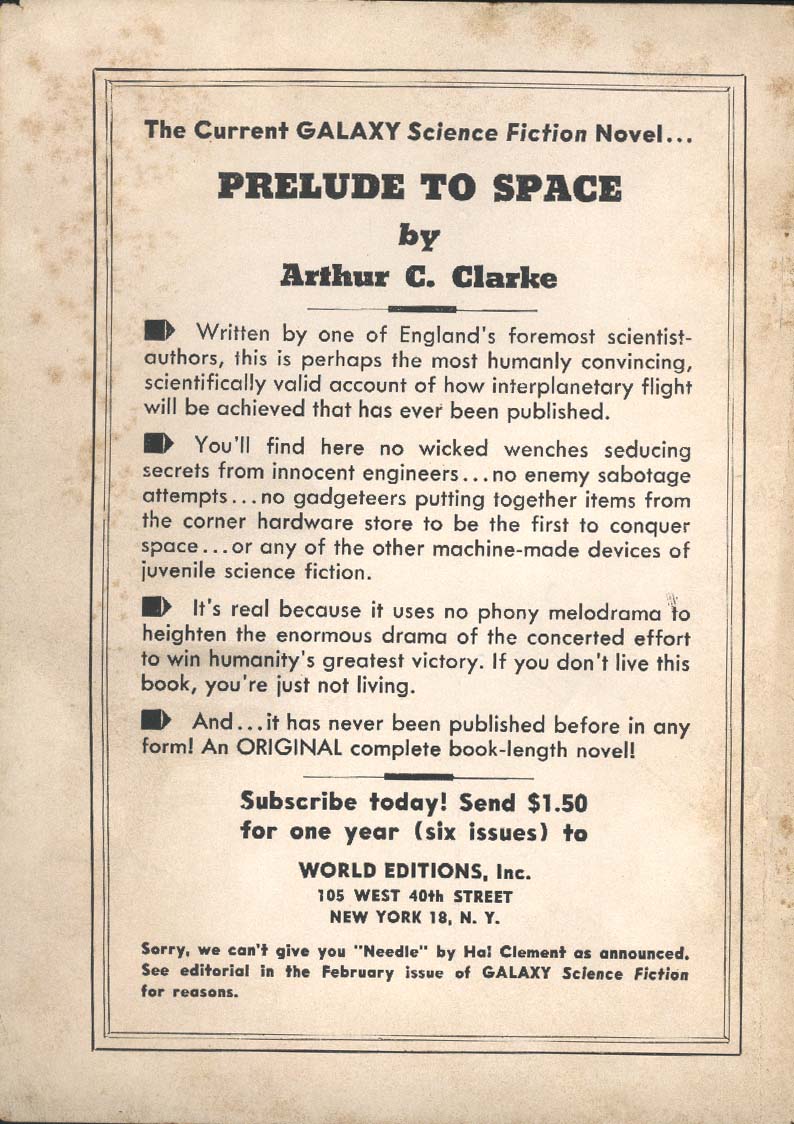

I’ve always perceived his prose quite differently, at its best eloquent and evocative, with appeals to the scope of time and space as a context for human society, how moves like this first trip into space are evolutionary events.

( Isfdb doesn’t show a print edition since Ballantine’s last, 1993, edition.)Ĭritics have occasionally complained about Clarke’s stilted prose - SFE even makes a point of saying this and his second novel “suffer from the rather wooden prose which Clarke later fashioned into a more flexible instrument, though he was never able to escape an occasional stiffness in his writing.”

Its first book publications were in 1953 from Sidgwick & Jackson in the UK, and in 1954 from Gnome Press in the US, and shortly thereafter if not simultaneously in paperback from Ballantine Books in the US, who kept the book in print for 40 years. The novel was published in 1951 as a “Galaxy Science Fiction Novel” in magazine digest format, (as were some 45 other titles over the decade of the 1950s). Still, some of Clarke’s guesses were misses. Indeed, Clarke’s novel is a better guess about how a launch to the moon would work than were those of other writers of the time, who clung to the vision of heroic lone inventors and single enormous rockets that would take off and return intact. Clarke had a background in radar and aeronautics - he famously anticipated the use of geosynchronous satellites for communications - and so one might expect a more truly scientifically authoritative novel compared to those from Asimov (whose background was only in biochemistry) and Heinlein (military service and politics). (Asimov, Heinlein, and Clarke were regarded as the “Big Three” science fiction writers for several decades beginning in the 1950s.) This is a novel about the launch of the first spaceship to go to the moon. Heinlein’s first-written novel ( For Us, the Living), it’s appropriate now to revisit Arthur C. Having in my two previous columns here covered Isaac Asimov’s first proper novel ( Pebble in the Sky) and Robert A. (Galaxy Science Fiction Novel #3) (160 pages, $0.25 in magazine digest format, 1951)

Clarke First Edition: World Editions, Inc.


 0 kommentar(er)
0 kommentar(er)
